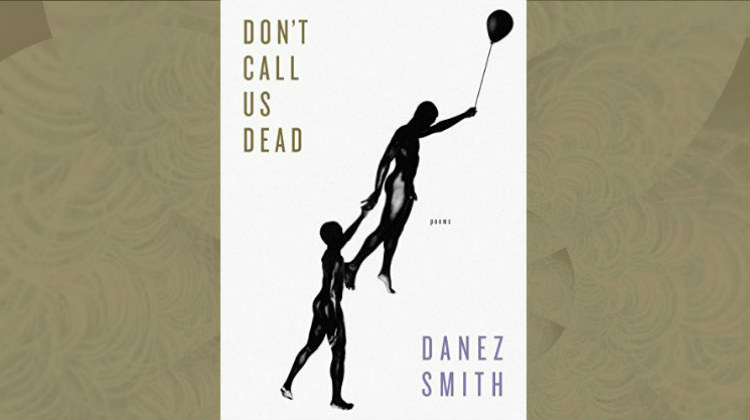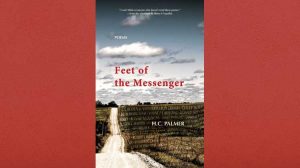
Don’t Call Us Dead by Danez Smith / Graywolf Press / 96 pages / 978-1555977856 / September 5, 2017
Not all poems are written and speak out in defense of something, not many books reach up and over their own identity to inhabit others, “learning to become all the space i need” (see: “it began right here”), but Danez Smith in their second collection of poems titled Don’t Call Us Dead rattles the core of the heart and consciousness for a new understanding of self and its singular and collective orientation in the world.
Danez Smith approaches the boundaries of self and its ways of seeing others. That this poet is queer and black says nothing about what kind of person they are, whereas it may suggest what sort of consciousness and subjects that are being represented. In what may be Smith’s most popular poem, “dear white america”, we come to hear the range of tones and spectrum of moods expressed in the book and particularly Smith’s sense of nationality, individual as well as tribal. The poet speaks: “i’ve left Earth to find a place where my kin can be safe, where black people ain’t but the same color as the good, wet earth, until that means something….”
So here’s one manner we come to meet the speaker in these poems: leaning toward unity in a divided culture, seeking a ‘sanctuary’ where “nothing is gun” (from “summer, somewhere”). This volume is a testament of a lively and courageous human facing the gun, so to speak, interrogating who flexes power and who is on the other end. Smith lifts the fallen body/bodies up to the light, probes the cosmos for a fierce justice, sees in their brothers’ redemption, objects to random forces of violence, of people gone unhonored, resisting oppression.
Poem after poem, line upon line, in one the voice booms, harsh, confrontational, and in the next it echoes softly, lying down in the shadowed wind made from itself. There’s gusto, headstrong but not foolhardy. There’s compassion, a touch of grace and hope lined in the resonating subtext of every one of the poems. It’s sweeping and stunning at once. At moments difficult to read, but easy to see what matters. Acknowledgement and unprejudiced acceptance of our fellow brothers and sisters, leaving differences to faith and not allowing for destruction, caring for one another’s way of being, and becoming aware of what brings us together, listening for how to be among each other regardless, or because of, the historical distances that have kept races at bay and the misunderstanding that grows large and decays within those gaps.
However, these are not poems selling cheap hope. It’s a hard-won sort of hope, not come by easy and never mind letting go. Smith’s is an earned alertness to the major tragedies and small joys (see: “recklessly” then read “a note on vasaline”) that offer moments of nourishment and insist that the struggle to love and be loved is worth ‘dancing on broken glass’ for. (See: “bare” – in which Smith writes, “if love is a room// of broken glass, leave me to dance/ until my feet are memory.”) It is Smith’s beautiful manner of moving among others with empathy and compassion where the greater suffering is made our own. Smith restores us to our responsibilities to the Earth and each other. The quality of spirit radiates here. Trailblazer of the soul, beacon of the heart in which our country’s shadow dimly pulses, skipping a beat.
As the title implies, Don’t Call Us Dead is no funeral, neither is it a book of lessons but a volume that speaks right from where it stands—“a myth/ proven true”—“alive someplace better”—in a “reunion of ancient lights” where a positive thing can be turned from two negatives. Don’t Call Us Dead is a life-affirming book that demonstrates “obvious things happen” which can be made miracles and given to reason that we are, when shown love, reborn to stars given the right names.




casimir wojciech says
Excellent.